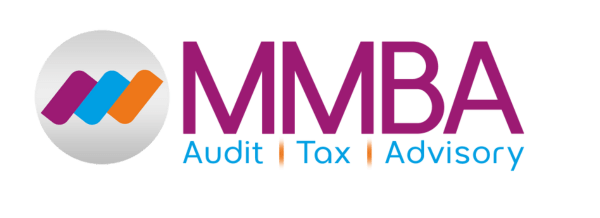
Recent Blog
Arrange a FREE Consultation Call and Let’s Discuss Your Goals!
If you run a UK business, one question that one often encounters is ‘Is there VAT on Facebook ads?’ There are many advertisers who rely on Facebook advertising to reach their market. But the rules around value added tax can feel tricky. This article breaks it down to help you can stay informed. It also helps you to avoid mistakes, and stay compliant with HMRC regulations.
Having an expert by your side, such as MMBA Accountants experts, can help you stay ahead of penalties. Moreover, it also lessens the looming burden of liabilities.
Table of Contents
What is VAT?
VAT, short form of value added tax, is a charge that applies to most goods and services in the UK. It’s a form of added tax that businesses pay and collect on behalf of the government. If you’re VAT registered, then you’ll need to pay VAT on certain business costs. Another important aspect is that Facebook ads fall into that category but it depends on the location and setup of your facebook ad account.
So, a simple answer to this question is in affirmative: ‘Yes’. In most of the countries (including the UK), the VAT does apply to Facebook advertising.
How VAT and Facebook Ads Works
If a person creates ads through your facebook ad account, then Facebook treats this as the transaction as a supply of advertising services. These services are subject to VAT rules. For a UK business, the impact is straightforward:
The first condition is if your business is VAT registered. If it is so then you’ll likely need to pay VAT on your ad spend.
The second aspect is that Facebook will charge VAT at the UK rate (currently 20%). But this is unless a person adds the VAT account details to your settings.
The last aspect is that if you are VAT registered, then you can reclaim this cost as input tax. This means it won’t affect your profits in the long term.
In other words, VAT increases the cost upfront. But if you handle it properly, it balances out as part of your trade expenses.
Why It Matters for Businesses
For many companies, Facebook ads means more than just an advertisement. They are a critical business cost that helps generate revenue and income. Even if you are running subscriptions, you are selling services, or simply raising awareness in society, online advertising is central to modern trade.
If one fails to handle VAT correctly, this could mean your ad spend becomes a disallowed expense for tax purposes. That means higher costs and reduced benefit to your business. However, if you stay on top of VAT this makes sure that your adverts remain affordable and effective.
The Global Context
In the global context, it applies to other countries as well, it’s not just the UK that applies VAT to digital advertising. There are different countries that have different regulations. So, the kind of tax one pays depends on ones location. For example:
- In the EU, Facebook usually applies VAT unless one adds a valid VAT account.
- If one talks about some regions, then one can exempt certain advertising services.
- In others, companies may need to self-assess VAT under local rules.
The answer is simple, if one operates worldwide, one needs to navigate this carefully in order to avoid unexpected bills.
Facebook vs. Other Platforms

A comparison is necessary to clear the confusions. It’s worth noting that this doesn’t just apply to Facebook. Similar platforms, like Twitter advertising, follow the same regulations when it comes to VAT. So, if a person promotes on Facebook, running ads on Twitter, or even uses Google, the rules generally continue to apply.
How to Stay Compliant
If one wants to stay compliant, then here are some steps UK advertisers should follow:
- Add your VAT number to your facebook ad account. By doing this, this makes sure that Facebook knows that you’re a VAT registered business.
- Secondly, download invoices directly from Facebook so you can show proof of the tax paid.
- Note the context: VAT is usually reclaimable if one intends the ads for business purposes, and not personal use.
- Keep informed about the changes in HMRC regulations to avoid surprises.
- If you are still not sure then we suggest speaking to your accountant because this is the safest way to facilitate correct reporting.
The Impact on Businesses
Yes, VAT increases the cost of your advertisement at the point of payment. But for most UK companies, this is a reclaimable business cost. The real impact is in your ability to manage cash flow. If you run a smaller business that isn’t VAT registered, you’ll have to absorb the added tax as part of your costs, this can cost at profits side.
Larger companies, however, treat it as a temporary form of expense that eventually balances out. Either way, knowing how VAT works with Facebook ads helps you plan your budget, protecting your revenue, and by affording ongoing campaigns.
Important Points to Note
Firstly, clear your mind on this question: Is there VAT on Facebook ads? Yes, VAT applies in the UK and many other countries.
- If you are VAT registered, you can reclaim the tax.
- If not, VAT becomes an extra business cost that you’ll need to afford.
- Always keep HMRC rules in mind, and make sure that your account settings are correct.
- Staying informed keeps your business safe, your advertising legal, and your profits protected.
Foreign companies or UK branch offices
These may need to pay tax in the UK on gains that are made from UK business assets.
This is why understanding if you’re an individual, civil partner, or part of a trading group matters for your tax obligations.
Business Asset Disposal Relief
For some businesses, business asset disposal relief (formerly entrepreneurs relief) can lower the gains tax payable when selling all or part of a company. This relief is often available to business owners who are winding down or selling their business.
If the gains qualify, you could pay a lower cgt rate than normal. The same applies when a business partner leaves and disposes of their share, or when a company owner sells machinery shares or other business-linked assets.
Residential Property and Companies
A common area of confusion is residential property. When individuals sell, they might pay capital gains tax based on whether they are basic rate taxpayers or higher rate taxpayers. Companies, however, must account for this under corporation tax rules.
The pay depends on whether the property was used for business purposes or held as an investment. In both cases, the company will report it as part of its tax return for the financial year. Moreover, if one faces any challenge, help from a property tax specialist in London can assist in navigating residential property confusion.
How Much Tax Do Companies Pay on Gains?
The question still looms: how much tax do companies actually pay?
- The tax rate is the corporation tax rate. However, it is for the relevant tax year.
- The amount that one has to pay depends on the profit or any qualifying gains. It also depends on the capital allowances.
- Losses from selling assets or other trading losses reduces the final tax liability.
Companies don’t have the same personal allowance or self assessment thresholds as individuals mostly have. Instead of that, one determines their liability entirely by their business accounts for the financial year.
Special Cases About Unincorporated Associations and Office Holders
Sometimes, unincorporated associations or an office holder may also face tax on gains. However, one needs to keep in mind that they aren’t companies in the usual sense, but they may still pay tax like a business.
The rules here are complex. HMRC provides further information to help determine when such groups must report capital gains.
Conclusion
One wonders do companies pay capital gains tax? However, strictly speaking, no. Instead, they pay corporation tax on their capital gains. The tax treatment is different from individuals, self employed workers, and business partnerships.
The exact pay depends on if the company makes a profit or not. It also depends on what kind of assets were sold, and if any tax reliefs or capital allowances apply. Be it’s selling shares, disposing of registered trademarks, letting go of residential property, or making a dividend payment, the company must always consider its tax position in the same tax year.
In short, companies don’t escape tax when selling assets. They just pay it under a different name that is corporation tax rather than CGT.
Frequently Asked Questions
Is There VAT on Facebook Ads for UK businesses?
Yes, there is VAT on Facebook ads for UK businesses. If your Facebook ad account is linked to a VAT-registered business, then you can reclaim it as a business cost.
How do I add VAT details to my Facebook ad account?
To add VAT details to your Facebook ad account, you have to update your billing section in your Facebook ad account by entering your VAT number. This makes sure that your Facebook advertising invoices are compliant.
Does VAT increase the overall business cost of Facebook advertising?
For non-VAT registered businesses, VAT becomes an extra business cost. For VAT-registered businesses, it’s reclaimable, so the long-term impact is minimal.
Does VAT apply to all targeting options on Facebook advertising?
Yes, VAT applies to all targeting options on Facebook advertising. It regardless of your targeting choices. If your ads are intended for local or international advertisers, the tax rules remain the same.
Why is it important to manage VAT on Facebook advertising?
It is important to manage VAT on Facebook advertising because if you handle VAT correctly, it helps reduce your business cost. It makes sure that your Facebook ad account remains compliant, and keeps your targeting strategy running smoothly without disruption.


